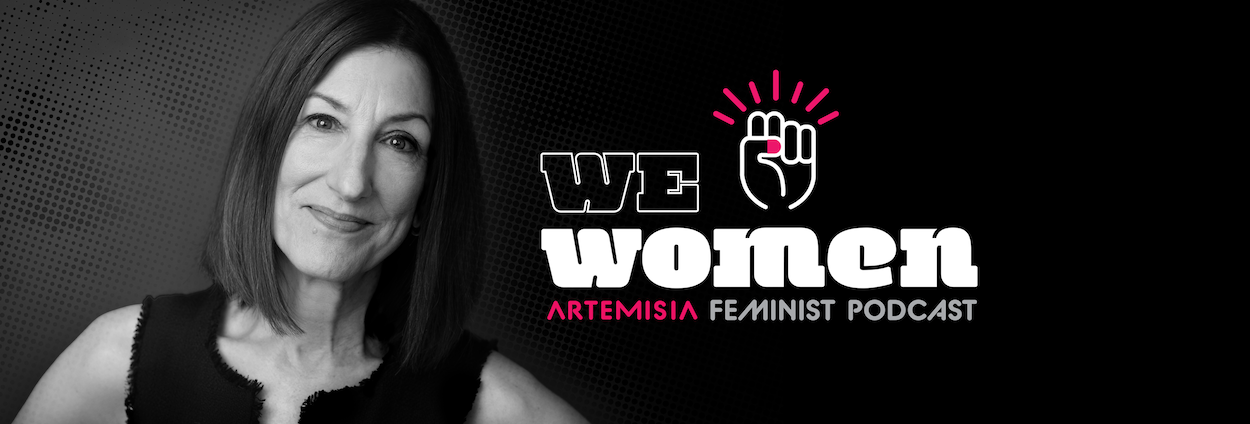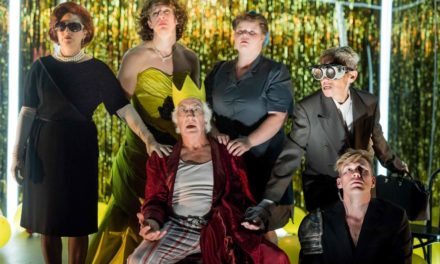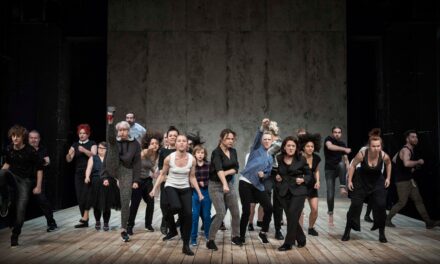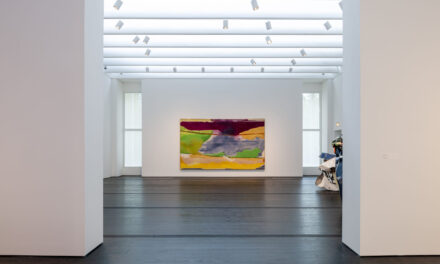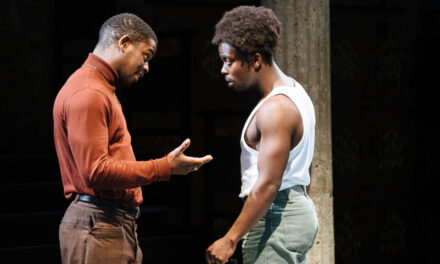As a female-identifying artist deeply invested in women’s stories (and as a staunch feminist), I’ve been following the work of Artemisia Theatre for years. Their dedication to their mission and unending innovation is a blueprint for us all to follow. 2021, with all of 2020’s lingering struggles, is no different: Artemisia has gone fully digital, presenting 10 feminist plays of classic and contemporary canon via live stream and podcast. This week, I was fortunate enough to sit down with Artemisia’s artistic director, Julie Proudfoot, to discuss their work and their upcoming season.
Rhiannon Ling: Firstly, for those of our readers who aren’t familiar with Artemisia, I’d love it if you could tell me a little bit about it. Who are you? What do you do?
Julie Proudfoot: Sure! I founded Artemisia in 2011 in response to the fact that women were not front and center in theatre. My mission was really to empower women, and that led to the production of feminist plays and putting women in leadership positions—as playwrights, as directors, as leading actors, as designers—and creating a lot of energy around our audience engagement and our mission to empower women, to the point where we would have after-show discussions and focus on basically two questions: does the play empower women? Does it challenge you to see women in a new light? My goal has always been to raise the bar on compassion and social justice for women through the use of the art of the theatre.
Ling: That is truly remarkable. And from what I understand, most of your creative team is female-identifying, too, correct?
Proudfoot: That is right. In fact, we’ve gone to a model for our leadership that is 100% women, and that includes our board of directors.
Ling: That is so, so wonderful. Now, for your 2021 season, you are producing two live-streamed world premieres [by resident playwright, Lauren Ferebee] and eight audio plays via your podcast, WeWomen. Before we jump into chatting about the shows in the season, I’d love to talk about the inception of the podcast itself. Clearly, it started during the pandemic, but how did the idea of turning to podcast as a medium come about?
Proudfoot: Y’know, I’m so thrilled you asked this because it’s one of those things [wherein] crisis becomes an opportunity. I curated a fall festival for eight years for Artemisia, which featured six new feminist plays that would then be staged as readings, and then the audience would engage in that discussion I referred to earlier. So when the pandemic hit, and it was clear that there was no safe way to go out and about in the world, I was very determined to continue to pursue our mission through programming, but also to give opportunities to theatre artists that suddenly found themselves with dried-up opportunities. I’m sure it was this way in other parts of the country, as well, but, at least in my region, it just stopped. Everything stopped. I’ve always been a fan of audio performance; I just think that it is a very exciting way for people to experience a play. So I did a search and I found a wonderful young black theatre artist named Willow James. Though he identifies as he, he is a fierce feminist and a wonderful theatre artist, and I hired him as a sound designer and hired him to help me produce the podcast. I just started out with interviews, and then we moved to readings towards the end of 2020 and did three plays as audio performances. That got us going. We got very excited about audio performance as a way to not only keep us performing and keep our audience engaged, but also to cover exciting plays, especially classic feminist plays that so often are just not produced, at all. They’re in the public domain and they’re just brilliant plays. So that’s how we went from the podcast to this full audio performance season for WeWomen in 2021.
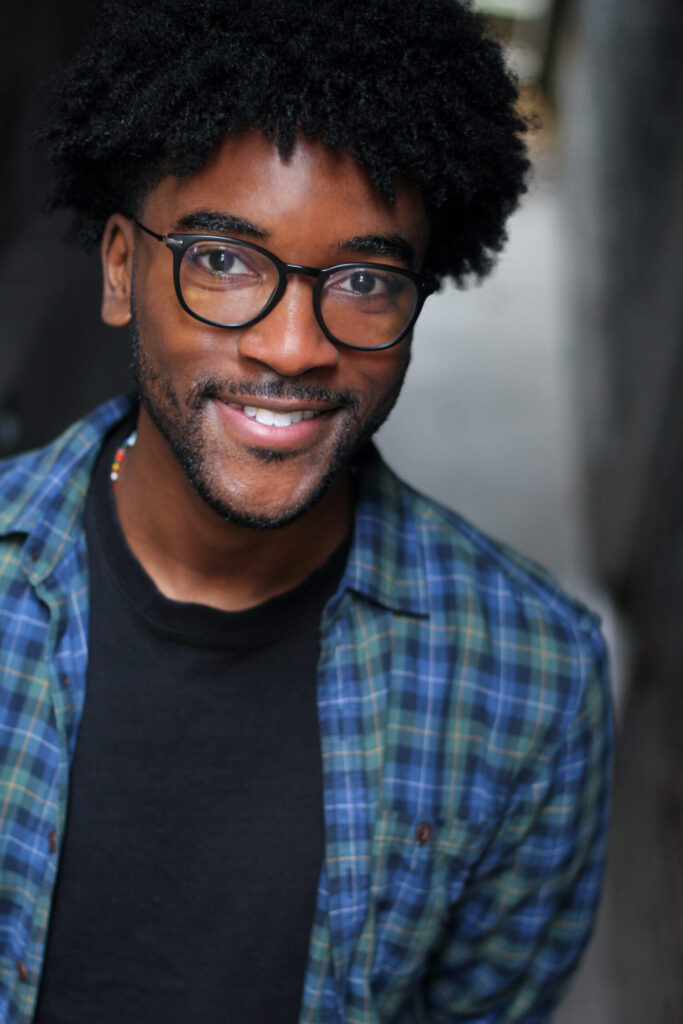
Sound designer Willow James. PC: Artemisia Theatre.
Ling: You’ve made me a little curious: how did you develop this fascination with audio plays?
Proudfoot: I think it started back in undergrad. In theatre, there were a couple of opportunities for me to do reader’s theatre, and then I did some professional work as an actor where I did some audio performances. I was always fascinated by the idea that when you hear—and I’m just a rabid storyteller; I love storytelling; that is why I do what I do: I’m a storyteller—and so the idea of language becoming action and emotion, and that happening in the audience’s heart and in their minds is just an amazing way to experience a play to me. Fast forward to the crisis and the terrible challenge of the pandemic. I thought, y’know, this is a really safe, beautiful way—and with Willow, he designs soundscape for these audio performances so that we really have a sense of the world, and what’s happening, and where people are, what they’re doing. It’s just a lovely way to experience a play.
Ling: So, jumping into your season a little bit. You mentioned classic feminist plays that are in the public domain, and within this upcoming season, you have quite the array of classic and contemporary plays. Each one is so beautifully individual. How did you go about selecting the plays to bring to a digitized format?
Proudfoot: Thank you so much for saying that about the plays. I agree with you, but it’s lovely that you see that, so thank you for that. I had a couple of goals, I would say, as a curator. One was just really giving rise to black feminist writers that often are just woefully overlooked, especially the early black feminist writers. Mary Burrill, for example. Her two protest plays—They That Sit in Darkness and Aftermath—are one-acts, but they are still absolutely elegantly written. They are so prescient. I had known of her work, and so I delved into those, and then I stumbled on other wonderful early black feminist writers, like Angeline Grimké’s Rachel. I don’t know why that play isn’t produced all the time. It’s so lovely because the leading character, the heroine of the play, is a woman, which is rare in that period. So that was a big goal, to give rise to classic and contemporary black feminist writers, female-identifying. The other goal I had was really to find plays [in which] each individual play represented a different world view that was contrasting to the rest of the season but also challenged the audience with a social justice issue. For example, I was finishing curating the season, and [Willow and I] got to talking about Medea, and how that brilliant tragedy and that female character is so often dismissed as just evil, and not seen as the complex antihero that she is. I started talking about that, and I said, “Wouldn’t it be amazing to just string together all of her soliloquies with a soundscape?” He said, “Oh my gosh, I can’t believe you’re saying this, because, in my senior project, I created a soundscape for a play, and I did it with actors, and we created the world of the play with a soundscape.” And I said, “Oh my gosh, we’ve gotta do this. I’ve gotta adapt Medea, have an actress do the soliloquies and tie it together with maybe voiceover, maybe not, just soundscape.” And that came out of a social justice issue around, y’know, when women are flawed, when women make big mistakes, when women struggle with their own moral compass, they’re dismissed. And our society needs to learn that we accept this from male characters—we have since Shakespeare, we have since Greek tragedies. Men can be totally flawed and seen as a hero. Then the final thing I really looked at was, I wanted to give my community of wonderful artists exciting opportunities. Ways that they could share in storytelling, in their art—as actors, as directors—and get around a play that was exciting to them. So those were my goals, really.
Ling: And may I say I believe you succeeded in them. An incredibly exciting season up-ahead. A follow-up question to that: what was the thought process that went into which ones would be live-streamed versus audio?
Proudfoot: That was really an issue of my relationship with Lauren Ferebee, our playwright. We were slated to do [Ferebee’s] Every Waiting Heart as our spring world premiere in June of 2020, and, of course, there was no way to make that happen. Lauren and I have become quite good friends, as well as colleagues, and she sent me a two-hander, simply because I helped her develop Every Waiting Heart as an artistic director and we established this relationship [with] me as a story analyst and a person to give her feedback as a dramaturg. So she sent me Goods—an early, early draft—and said, “If you would be willing to give me notes on this, I would be forever grateful.” And I said, “Oh, that door’s always open.” I read it, and I went, “Oh. We could do this. We could do this in Zoom.” I won’t just do a Zoom play. When I’m gonna do something seen, I need to feel, as an artistic director, that it is credible for our audiences to look at it. I guess it’s my visual snobbery, for lack of a better word, from doing work in LA and on camera for so many years. I want to give the audience something more if I’m going to say it’s a full performance. So, I really started to get excited about Goods, and that’s how that deal was struck. Then, I started to think about Lauren as a resident playwright and [about doing] two virtual world premieres, because I wanted something in 2021 very ambitious but very doable in terms of safety and aesthetics. Could I do this and do it well, and bring our stamp to it of women in the lead? I have always wanted to take a certain lens on the Triangle Shirtwaist Factory Fire in 1911. It’s a story that’s been told, but it’s always been through the lens of “this terrible fire, these women were victims,” and of course they were, it was horrible. But out of that fire came, perhaps, one of the greatest feminist labor movements in our history. It was huge, what happened. Lauren had just done a short piece that dealt with that as a side plot, and we just got to talking about it, and I said, “That could be an amazing Zoom play.” You could literally do it on Zoom with visual effects, with these women in period costumes, telling their individual immigrant stories, their tragedy, and then them coming through to this empowering voice as leaders of a labor movement. She was hooked, and I was hooked. So we commissioned it.
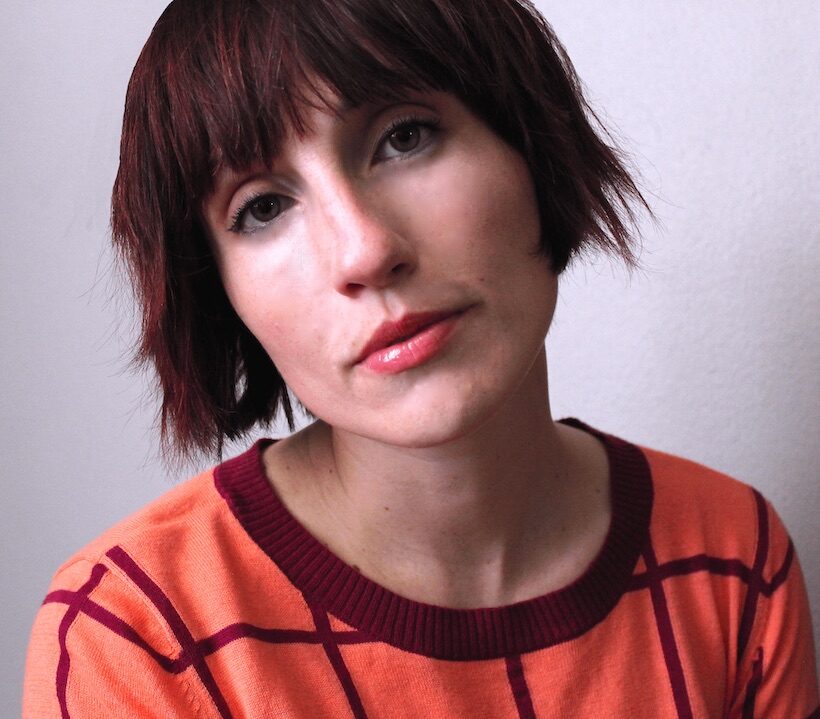
Resident playwright Lauren Ferebee. PC: Artemisia Theatre.
Ling: How, in your experience, is a digital play different? What does it have to offer to both its artists and its viewers?
Proudfoot: I think, first of all, that whoever’s curating for a virtual season has to be aware that this is a new media. We’re very used to live events as entertainment, and we’re very used to filmed events. Now, we’re stepping into a new medium, which is either streamed or taped—we’re going to tape ours. This new media event truly is using media to communicate performance in a new way. And one of the things I think is innovative about it is that it challenges you—this is probably going to sound very strange, but as I think of the Globe in Shakespeare’s time and reading those plays and how brilliant that playwright was at creating a world with language so that you could have the characters, the action, the relationships, the narrative, on a bare stage. You could, for the most part, if not totally, get it. And not only get it, but love it. The work is vital in terms of its storytelling, and it allows you to pare back. Not all stories do. Not all plays do. So, I think the very first thing is I, at least, believe that whatever you choose has got to live in that new media. So, Goods, obviously: this is two female-identifying junk collectors in space in 2100. These women are in a spacecraft, and they never leave. You’ve got a two-hander, space, a few objects, and the relationship, and the debilitating, empowering discovery they make about their own moral centers. So, it’s character-driven, it’s an effect you can create very simply with the right videographer (and I have a wonderful one; I’m very lucky), and the narrative is driven by character, action, and discovery. It’s not driven by visual spectacle. And then, of course, Into a Blaze: The Triangle Shirtwaist will be embraced as a Zoom play. We will embrace that they’re all in their compartments. Now: how does that work? How does that change? And how do they come in and out of time and space? Who does escape the fire? Who doesn’t? And how? Who goes to the rooftop and jumps off, thinking she’s gonna live, and doesn’t, because the rescuers don’t get there in time? And how do we use sound, and fire, and rescue? I think you have to be very, very aware of what the medium will let you do. But it is so exciting to think about, because if you’re a story freak, and love text, and love what it can do, then I think you can begin to curate a season that lets you go down this new road.
Ling: The innovation aspect of it is certainly exciting; I think any creative can agree with that. One thing that I do want to touch on while I chat with you: Artemisia is partnering with a variety of social justice organizations throughout the season, one paired with each play. I’d love if you could talk a little bit about that. Who are they? How are they integral to your 2021 season?
Proudfoot: That’s a really good question. I think as we have entered into 2021, we’ve really honed that down to finding women who are leaders in the community through an organization, who really believes in giving women rise. Their careers are based on elevating women’s voices and empowering them. For example, I had the honor of just interviewing Sandra Gonzalez, who is a remarkable young woman. She’s so young, and she’s done all these things. She’s just a remarkable person. She talked a lot about her founding of the Aurora Rapid Response Team because our first play—What About the Children? by Sharai Bohannon, a dear friend of mine—is about immigration, what’s happening to the children at the border. It’s seen through the lens of a white couple, and the wife is leaving the husband because he’s border patrol, he’s doing something she just can’t live with. So, Sandra was chosen because of her work in immigration justice, but she also is doing all these other amazing things to give voice to young people of color, particularly women of color. So all through our season, we’re going to be chatting with women in leadership who are trying to make a difference in a certain social justice position. Opposing Ophelia has to do with black joy and women’s beauty, and how, so often in a white privilege society, black women have been viewed through a lens that is oppressive and sexist. And as we find these wonderful women that we’re talking to, we’re discovering that the leadership that women bring in our world simply is not getting amplified the way it should be.
Ling: Going off of that, what do you hope your community, and the world at large, will gain from these ten plays in the way they’re presented?
Proudfoot: Gosh. I really want to make the world better for women. I think that we’re far past due. I think—and I feel very strongly about this, obviously—I think the obstacles that women face, whether it be sexual harassment and assault, whether it be robbing them of their right to choose, whether it be the white male privilege system saying “Yeah, this is as far as you get to go,” whether it be much more subtle forms of ubiquitous and dangerous harassing…and a lot of times, it’s accepted as the norm. We are, as women, not accepted as people. We are not given our full voice as human beings in the world. A woman steps outside some gender stereotype, and she’s attacked, while a man can so often get away with a lot worse. So, I think I would say that the first thing I would love the audience to start to embrace is women as equal. Equal voices in the story. I can have all women up there, and it’ll still be a terrific play, and it can still sell tickets, and can still excite an audience. I guess I would really love to start to influence the business, writ large, of theatre and entertainment with the idea that, y’know, put your money behind some female playwrights and some female writers and some female talent. We’re past due for this. And then the second thing I would say is, as people absorb and experience these plays, I would love them to learn where their own bias—conscious or unconscious—lies. What are they afraid of? What are they holding on to? What is the problem with being a feminist? Why is that a dirty word in some people’s worlds? It only means that I see myself and other women as equal. That’s all it means. And yet, it’s turned into this, “Ugh, she’s an angry feminist.” We hear that all the time. Then, the third goal would be, if I’m really getting ambitious and dreamlike, [is] as we make the world better for women—which is ultimately what I wanna do, always—we make the world better for everybody, because gender bias, stereotype, anger, fear, it just dissolves us into all the old evils that we’ve needed to confront for hundreds and thousands of years. We’ve got to deal with it by talking about it. We’ve got to deal with it by having the conversation. For me, there’s no better way to have a conversation than through art. I noticed this with the Fall Festival. You can sit back and watch a play, let’s say, about sexual assault, or women coping with mental disorders and illness, and it’s not you. It’s a play, so you feel safe. And you can talk about the play, and you still feel safe, because you’re talking about a play. You’re not talking about your best friend who may be struggling with bipolar. You’re not talking about when you were sexually assaulted in high school. As a man, you’re not talking about how you wrestle with sexist attitudes. You’re talking about a play. But the play then begins to bubble. I’ve seen it happen over and over again. If you’re strong as an artistic director, and you make people stick to those two questions—Does the play empower women? Does it challenge you to see women differently?—it’s amazing what bubbles to the surface, what people begin to confess, what they begin to see. That’s why we kept the creative discussions in the podcast. We do the audio performance, then I talk to my wonderful team, about what the play means to them. Then I ask those two dedicated questions at the end. Then we release that as a podcast, and then, of course, we do an interview. It’s important to keep that discussion going.
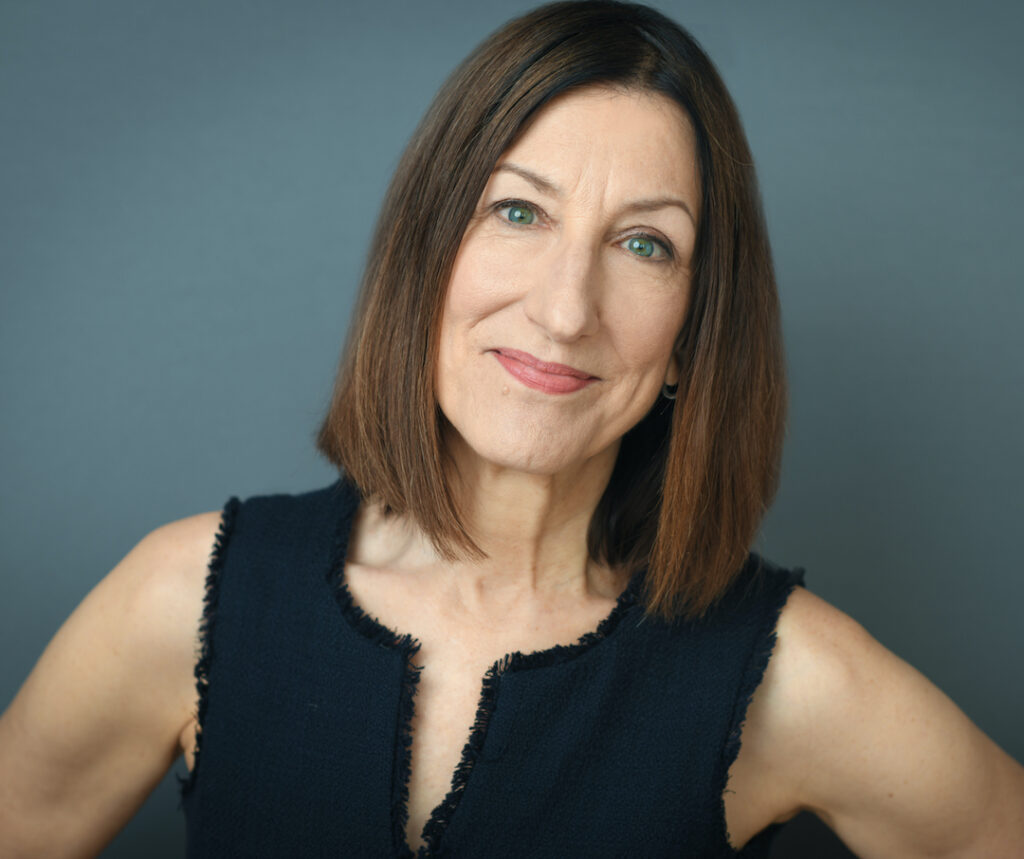
Artistic director Julie Proudfoot. PC: Artemisia Theatre.
Artemisia’s 2021 season can be found at the following intervals (podcasts free and remaining available to the public long after their release; livestreams costing $15-$30 and only available during performance dates):
Livestreams:
Goods by Lauren Ferebee: May 5-30
Into a Blaze: The Triangle Shirtwaist by Lauren Ferebee: October 20-November 14
Audio Plays:
What About the Children? by Sharai Bohannon: January 20 (Creative Discussion: February 3; Social
Justice Interview: February 17)
Opposing Ophelia by Deneen Reynolds-Knott: March 3 (Creative Discussion: March 17; Social Justice Interview: March 31)
Bold Stroke for a Wife by Susanna Centlivre: April 14 (Creative Discussion: April 28; Social
Justice Interview: May 12)
Rachel by Angelina Weld Grimké: May 26 (Creative Discussion: June 9; Social Justice
Interview: June 23)
Aftermath by Mary P. Burrill: July 7 (Creative Discussion: July 21; Social Justice Interview:
August 4)
Medea by Euripides, adapted by Julie Proudfoot, soundscape by Willow James: August 18
(Creative Discussion: September 1; Social Justice Interview: September 15)
Close the Book by Susan Glaspell: September 29 (Creative Discussion: October 13; Social Justice
Interview: October 27)
Above the Fold by Julie Zaffarano: November 10 (Creative Discussion: November 24; Social Justice
Interview: December 8)
For more information, to purchase tickets, and to locate the podcast, please visit artemisiatheatre.org.
This post was written by the author in their personal capacity.The opinions expressed in this article are the author’s own and do not reflect the view of The Theatre Times, their staff or collaborators.
This post was written by Rhiannon Ling.
The views expressed here belong to the author and do not necessarily reflect our views and opinions.

